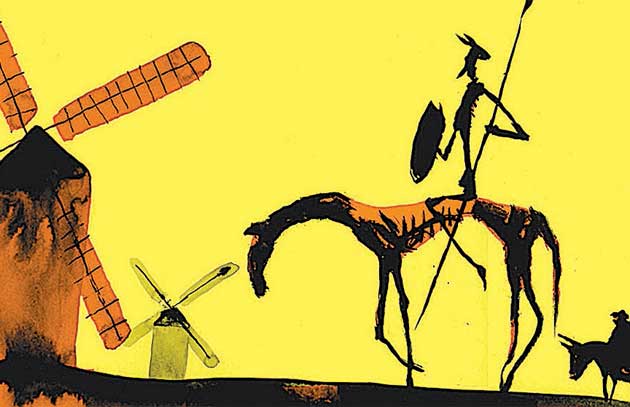The Ashland Daily Tidings, a morning newspaper serving the sister city of Ashland, Oregon, USA, published an article to remind us of the International Cervantes Festival (Festival Cervantino Internacional), which will take place from Oct. 3 to 23, commemorating the 400th anniversary of Miguel de Cervantes’ death.
Ashland’s Sister City, Guanajuato, Mexico, has been recognized since 2005 as the “Cervantes Capital of the Americas” for its annual festival dedicated to Spanish novelist, playwright and poet Miguel de Cervantes Saavedra, best known for his novel, “The Ingenious Hidalgo Don Quixote of La Mancha.”
This year’s 44th annual International Cervantes Festival (Festival Cervantino Internacional), Oct. 3-23, will commemorate the 400th anniversary of Cervantes’ death.
Several Ashland residents will attend the festivities, among them Amigo Club members Jacqueline Milikien, Elizabeth Fitting, Lynn and Tom Lamoree, Teri and Leroy Coppedge, and Marsha King and her husband, Art Rosine. The festival sells out months in advance and fills the city’s hotels with visitors.
Since its founding in 1972, the festival, popularly called “El Cervantino,” has become a showplace of artists and the arts from around the world. This year’s edition will feature 700 activities and 3,500 artists from 38 countries.
Since its publication in 1605, the story of the adventures of the idealistic knight, Don Quixote, and his squire, Sancho Panza, has circled the Globe, translated in whole or in part into 60 languages. It has inspired at least five movies and the Tony-winning Broadway musical and movie, “The Man of La Mancha” that features the song, “The Impossible Dream.”
Cervantes was born in 1547 in Alcalá de Henares, a village about 20 minutes by train or car from Madrid. His childhood home has been turned into the Cervantes Birth-House Museum, which features the ambience of his youth. UNESCO has recognized both Alcalá and Guanajuato as World Heritage cities.
Cervantes and Don Quixote are Spanish icons, more so than bullfights and paella. So, how did Ashland’s Mexican Sister City, Guanajuato, become a Cervantes center that includes the festival, the Don Quixote Iconographic Museum and the life-style statues near the Cervantes Theater of Don Quixote on his horse and Sancho Plaza on a mule?
For one thing, Don Quixote belongs to the world. The Encyclopaedia Britannica says he is “the most important and celebrated figure in Spanish literature,” not only in Spain, but around the world, and “the figures of Don Quixote and Sancho Plaza are probably familiar visually to more people than any other imaginary character in world literature.”
The novel has even generated a word, “quixotic,” meaning “like Don Quixote,” or “extravagantly chivalrous or foolishly idealistic; visionary; impractical or impracticable.”

